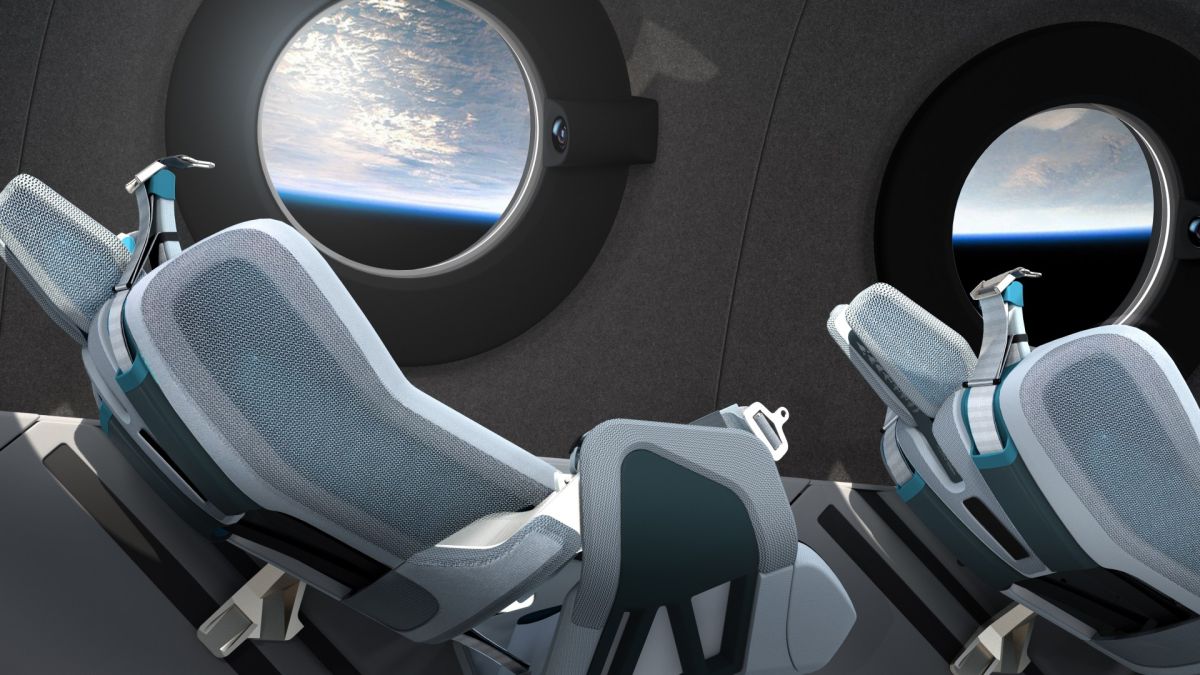
www.space.com
Apollo 11 vs. space tourism in 2022 (op-ed)
We honor the heroes of Apollo 11 and all those who made their accomplishment possible, yet many still deride astronauts in the U.S. private space industry.
Science & Tech
This week we celebrate the anniversary of Apollo 11 and the first humans to step onto the moon. Meanwhile, as the federal space program that put them on the lunar surface dodders and sputters along, a new wave of humans are stepping out onto the space frontier, except this time they don't work for the government. Why is it important? Who benefits? What's the difference?
A so-called "space tourist" is typically a person who has worked to accumulate enough funds to obtain a ride into space; who goes through appropriate training, then, achieving a life-long dream, goes to space. While there, they look around and take in the experience. Many use their time in space to promote idea-based projects such as inspiring students or drawing focus to the Earth's environmental challenges. Others do scientific experiments, as in the recent week-long Axiom mission to the International Space Station.
The Apollo astronauts were paid employees of the U.S. government and therefore used taxpayer funds to obtain their ride into space. Their training was as rigorous as expected for anyone going to an unknown place for the first time. In most cases, going to the moon was the crowning achievement of their lives, even if, rather than selecting the destination, they were selected by NASA.
While in space and on the moon, part of their job was to inspire American students. Also, while the environment wasn't a priority at the time, their images of the "little blue marble" of Earth helped birth the environmental movement. The science they did was amazing.
Of course, we cannot ignore the main reason they went - to demonstrate America's democratic free enterprise society was superior to the communist state of the Soviet Union and get the upper hand in the space race.
While today we honor the heroes of Apollo and all those who made their accomplishment possible, many deride the children who stand on their shoulders in the U.S. private space industry. Some critics have latched onto the admittedly terrible "tourist" brand and that the highest profile leaders of what I call the "New Space Revolution" are often extremely wealthy, as are the private astronauts buying the rides. Completely missing the irony, historical nature, and context, these critics use these two points as cudgels to hammer away at what by all rights should be the most celebrated accomplishment of the modern era - the opening of space to humanity.
While my friends Buzz Aldrin and Neil Armstrong changed history with their first "small steps," the "giant leap" they spoke of did not immediately manifest itself. After taking the most expensive selfies in the world, they and their fellow lunar explorers went home.
But the seeds they planted, both technological and inspirational, have finally begun to burst out of Earth's gravity and reach for the stars. They may not look the same or as if they come from the same place, but they are. More importantly, what this new citizen-driven space race is beginning to accomplish is, or at least should have been, the goal of Apollo all along.
Buzz, Neil, and the other NASA astronauts were their era's Lewis and Clarks. SpaceX, Blue Origin, Axiom, and dozens of smaller commercial space companies building spaceships, orbital buildings, and the infrastructure we need to survive and thrive in space are today's railroaders, shopkeepers, and eventually will become our settlers. In other words, while it has been achingly slow for those of us working on the cause, the "giant leap" referred to in 1969 is finally occurring.
Advertisement
It just looks different than we've been taught to expect - because it is - but it is part of the same partnership between the government and people that makes us great.
Apollo was, in essence, a military campaign dressed in a civilian spacesuit. It was entirely government-funded, and once it achieved its definition of victory, it ended. Today, while grateful for the support of the government in technology development and its new role as a customer, space is being opened by private people, using the free enterprise system to build on their achievement and, this time, make it irreversible.
This pioneering phase does look different than our past. For example, aside from the important fact that this time we aren't taking outer space from anyone, in America's pioneer period one could just climb onto a wagon (or even walk) and get to the frontier (surviving was of course much more challenging). To get to, and survive on the space frontier requires a lot more front-end technology development. Someone has to pay for that, and given that at least in free nations it is not the government's job, citizens themselves have had to step up.
Yes, the people funding the companies laying the tracks to space have money. Yes, to support the development of what will someday become Earth's mass transit system to the solar system, tickets are being sold to people who have money. Yes, people opening space today will make money at some point, which will pay to open the airlock even wider, allowing more people to pass through to a new and exciting frontier of possibility. As imperfect and unfair as it may seem, this is the same economic progression that allows you to hop into a steel tube with wings and fly to see your grandmother, climb into your car and go camping, take your own selfies and send them instantly around the planet.
























































